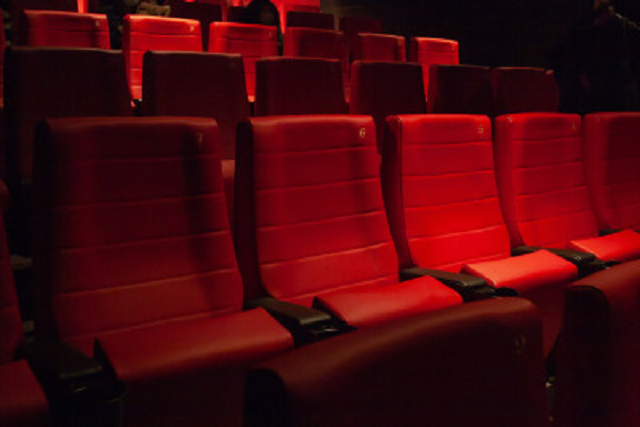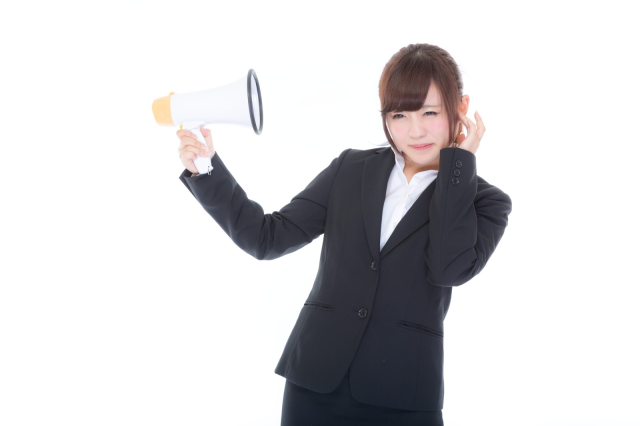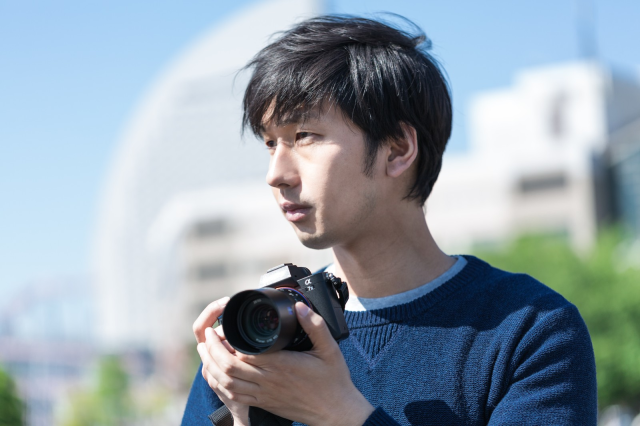
Survey finds a big, and surprising, gap between what young and old people think is acceptable behavior.
Movie theaters in Japan have a lot of things their American counterparts don’t. Draft beer is available in each and every cineplex, for example, and there’s always a gift shop selling programs and other merch for the newest films.
But one thing that’s a bit harder to find in Japanese theaters is loud laughter. Survey site Minna no Koe recently asked its users “How do you feel about people laughing loudly during movies?”, and the 2,908 replies broke down as:
It’s rude: 55 percent
It’s OK: 45 percent
It’s not like Japanese moviegoers don’t like comedies or comedic scenes, though, so why do the majority of the survey participants find big belly laughs impolite? Odds are there’s a connection to what Japanese society considers acceptable behavior in a group setting. While there’s definitely an appeal to the feeling of audience solidarity that comes from watching a movie in the theater, the primary reason everyone is there is, of course, to see the movie, and forcing other people to hear your laughter could be an annoying distraction.
There’s also the fact that humor tends to be more highly subjective than excitement, fear, or many other emotions movies aim to draw out of audiences. Even if a joke lands perfectly for you, it might not even warrant a silent smile from the stranger sitting next to you, and since Japanese courtesy almost always prioritizes not bothering others, it’s not surprising that a lot of moviegoers think that you should save your really loud laughs for when you’re watching a movie in the privacy of your own home.
And before you go assuming that this must be because of stuffy senior citizens who’re wagging their fingers at rambunctious youngsters causing a ruckus during the moving picture show, it was actually the younger respondents who’re more likely to think people should keep their laughter at a low level.
● Respondents 19 or younger
It’s rude: 68 percent
It’s OK: 31 percent
● Respondents 20-29
It’s rude: 58 percent
It’s OK: 41 percent
● Respondents 30-39
It’s rude: 58 percent
It’s OK: 41 percent
● Respondents 40-49
It’s rude: 58 percent
It’s OK: 41 percent
● Respondents 50-59
It’s rude: 52 percent
It’s OK: 47 percent
● Respondents 60-69
It’s rude: 50 percent
It’s OK: 49 percent
So what’s causing the age gap? It could be that in Japan, movie-making/marketing is heavily star-driven, with the lead actor/actress often starkly overshadowing the plot, director, or anything else. Younger fans tend to be the most ardent celebrity worshipers, and so a lot of teens and young adults are probably sitting in the theater because of their personal devotion to their favorite boy band idol who’s dabbling in acting, anime voice actress, or some other performer whose presence prompted them to buy a ticket, and thus don’t want their reverence infringed upon by loud laughers.
▼ “This summer, the producers of Cute Japanese Girl Does Some Stuff bring you their newest creation: Handsome Japanese Dude Does Some Other Stuff!”
Or maybe it’s just that the older moviegoers’ hearing isn’t as good as it used to be, and so they don’t really notice/mind how other people are reacting to the movie.
In any case, before you swear off ever seeing a movie in Japan (and thus never getting to watch a movie while relaxing in a kotatsu), bear in mind that the survey was specifically about “loud” laughing, so it’s not like Japanese people sit in stony silence from every movie’s start to finish. And if you really want to get rowdy, there’re always Japan’s “make-as-much-noise-as-you-want-to” screenings for hits like Your Name, Shin Godzilla, and Commando.
Source: Minna no Koe
Top image ©SoraNews24
Insert images: Pakutaso (1, 2)
● Want to hear about SoraNews24’s latest articles as soon as they’re published? Follow us on Facebook and Twitter!
[ Read in Japanese ]
Follow Casey on Twitter, where he confused his Japanese frind several times by laughing at weird parts of The Dark Knight.
[ Read in Japanese ]



 Majority of Japanese men in their 20s say they want men-only train cars in survey
Majority of Japanese men in their 20s say they want men-only train cars in survey Japanese employees show almost unanimous support for in-office romances in survey
Japanese employees show almost unanimous support for in-office romances in survey Nearly half of young Japanese women say they “hate” the company they work for in survey
Nearly half of young Japanese women say they “hate” the company they work for in survey Japanese women asked what they would do if they had a man’s body for one day in survey
Japanese women asked what they would do if they had a man’s body for one day in survey Japanese men reveal their favorite women’s lingerie colors in survey
Japanese men reveal their favorite women’s lingerie colors in survey Hello, cosmetics! Clinique teams up with Hello Kitty this summer for first-time collaboration
Hello, cosmetics! Clinique teams up with Hello Kitty this summer for first-time collaboration How to order snacks on a Shinkansen bullet train in Japan
How to order snacks on a Shinkansen bullet train in Japan Burger King Japan suddenly adds Dr. Pepper and Dr. Pepper floats to its menu nationwide
Burger King Japan suddenly adds Dr. Pepper and Dr. Pepper floats to its menu nationwide Japan’s new difficult-to-drink-from beer glass protects your liver, but it’s a brutal experience
Japan’s new difficult-to-drink-from beer glass protects your liver, but it’s a brutal experience New samurai glasses are Japan’s latest weird must-have souvenir
New samurai glasses are Japan’s latest weird must-have souvenir Studio Ghibli releases Ponyo donburi bowl to bring anime ramen to life
Studio Ghibli releases Ponyo donburi bowl to bring anime ramen to life New Nintendo Lego kit is a beautiful piece of moving pixel art of Mario and Yoshi【Photos】
New Nintendo Lego kit is a beautiful piece of moving pixel art of Mario and Yoshi【Photos】 Nintendo history you can feel – Super NES, N64, and GameCube controllers become capsule toys
Nintendo history you can feel – Super NES, N64, and GameCube controllers become capsule toys Demon Slayer: Kimetsu no Yaiba gets new roller coaster attractions and food at Universal Studios Japan
Demon Slayer: Kimetsu no Yaiba gets new roller coaster attractions and food at Universal Studios Japan High-fashion Totoro cuddle purse is like an elegant stroll in the forest【Photos】
High-fashion Totoro cuddle purse is like an elegant stroll in the forest【Photos】 “The most Delicious Cup Noodle in history” – Japan’s French Cup Noodle wins our heart【Taste test】
“The most Delicious Cup Noodle in history” – Japan’s French Cup Noodle wins our heart【Taste test】 Starbucks releases a cute Frappuccino and Unicorn Cake…but not in Japan
Starbucks releases a cute Frappuccino and Unicorn Cake…but not in Japan Kyoto Tower mascot termination reveals dark side behind cute Japanese characters
Kyoto Tower mascot termination reveals dark side behind cute Japanese characters McDonald’s Japan’s Soft Twist Tower: A phantom ice cream only sold at select branches
McDonald’s Japan’s Soft Twist Tower: A phantom ice cream only sold at select branches Yabai Ramen: What makes this Japanese ramen so dangerous?
Yabai Ramen: What makes this Japanese ramen so dangerous? Finally! Nintendo Japan expands Switch 8-bit controller sales to everybody, Online member or not
Finally! Nintendo Japan expands Switch 8-bit controller sales to everybody, Online member or not Japanese government wants to build luxury resorts in all national parks for foreign tourists
Japanese government wants to build luxury resorts in all national parks for foreign tourists To combat declining birth rate, Japan to begin offering “Breeding Visas” to foreigners
To combat declining birth rate, Japan to begin offering “Breeding Visas” to foreigners 10 things you should buy at 7-Eleven in Japan
10 things you should buy at 7-Eleven in Japan Studio Ghibli releases anime heroine cosplay dresses that are super comfy to wear
Studio Ghibli releases anime heroine cosplay dresses that are super comfy to wear Woman charged for driving suitcase without a license in Osaka
Woman charged for driving suitcase without a license in Osaka Studio Ghibli unveils My Neighbour Totoro miniature house model
Studio Ghibli unveils My Neighbour Totoro miniature house model Kyoto experiencing problems with foreign tourists not paying for bus fares, but not on purpose
Kyoto experiencing problems with foreign tourists not paying for bus fares, but not on purpose Fighting mild hunger with a Japanese soda that turns into jelly in the stomach【Taste test】
Fighting mild hunger with a Japanese soda that turns into jelly in the stomach【Taste test】 Studio Ghibli’s Howl’s Moving Castle tapestry unveiled in Japan for first time
Studio Ghibli’s Howl’s Moving Castle tapestry unveiled in Japan for first time McDonald’s new Happy Meals offer up cute and practical Sanrio lifestyle goods
McDonald’s new Happy Meals offer up cute and practical Sanrio lifestyle goods Sales of Japan’s most convenient train ticket/shopping payment cards suspended indefinitely
Sales of Japan’s most convenient train ticket/shopping payment cards suspended indefinitely Sold-out Studio Ghibli desktop humidifiers are back so Totoro can help you through the dry season
Sold-out Studio Ghibli desktop humidifiers are back so Totoro can help you through the dry season Japanese government to make first change to romanization spelling rules since the 1950s
Japanese government to make first change to romanization spelling rules since the 1950s Foreigner’s request for help in Tokyo makes us sad for the state of society
Foreigner’s request for help in Tokyo makes us sad for the state of society Ghibli founders Toshio Suzuki and Hayao Miyazaki contribute to Japanese whisky Totoro label design
Ghibli founders Toshio Suzuki and Hayao Miyazaki contribute to Japanese whisky Totoro label design Doraemon found buried at sea as scene from 1993 anime becomes real life【Photos】
Doraemon found buried at sea as scene from 1993 anime becomes real life【Photos】 Tokyo’s most famous Starbucks is closed
Tokyo’s most famous Starbucks is closed Princesses, fruits, and blacksmiths: Study reveals the 30 most unusual family names in Japan
Princesses, fruits, and blacksmiths: Study reveals the 30 most unusual family names in Japan Nearly 70 percent of young Japanese women self-identify as otaku in survey
Nearly 70 percent of young Japanese women self-identify as otaku in survey Only one demographic in survey is happy about Japan’s workplace obligation Valentine’s chocolate
Only one demographic in survey is happy about Japan’s workplace obligation Valentine’s chocolate More than one in three Japanese working women in survey would rather be housewives
More than one in three Japanese working women in survey would rather be housewives Japanese survey picks “slightly plump” as the cutest body type for women
Japanese survey picks “slightly plump” as the cutest body type for women Almost half of Japanese grade-school girls say they’ve never heard of “programming” in survey
Almost half of Japanese grade-school girls say they’ve never heard of “programming” in survey Overweight, bald, or cheap? Japanese women pick the man they’d least want to marry in survey
Overweight, bald, or cheap? Japanese women pick the man they’d least want to marry in survey Idol singer dating bans are unnecessary, say majority of Japanese college men in survey
Idol singer dating bans are unnecessary, say majority of Japanese college men in survey Survey picks “thin” as second-least-attractive body type for Japanese women
Survey picks “thin” as second-least-attractive body type for Japanese women Survey finds big gap in Japanese train passengers who want to sit next to someone of opposite sex
Survey finds big gap in Japanese train passengers who want to sit next to someone of opposite sex Survey says Japan is deeply dissatisfied in bedroom, prefers eating to getting it on
Survey says Japan is deeply dissatisfied in bedroom, prefers eating to getting it on Mario isn’t number one? Nintendo plumber doesn’t win Super Mario series character popularity poll
Mario isn’t number one? Nintendo plumber doesn’t win Super Mario series character popularity poll Japanese women show continuing decline in how much they expect a husband to earn in survey
Japanese women show continuing decline in how much they expect a husband to earn in survey Japanese women reveal how far they’ve gone in “stalking” a guy they like in survey
Japanese women reveal how far they’ve gone in “stalking” a guy they like in survey Should you dip your egg sushi in soy sauce before you eat it? Survey asks Japanese diners
Should you dip your egg sushi in soy sauce before you eat it? Survey asks Japanese diners Over 94 percent of Japanese people in survey find movie theater prices too expensive
Over 94 percent of Japanese people in survey find movie theater prices too expensive
Leave a Reply